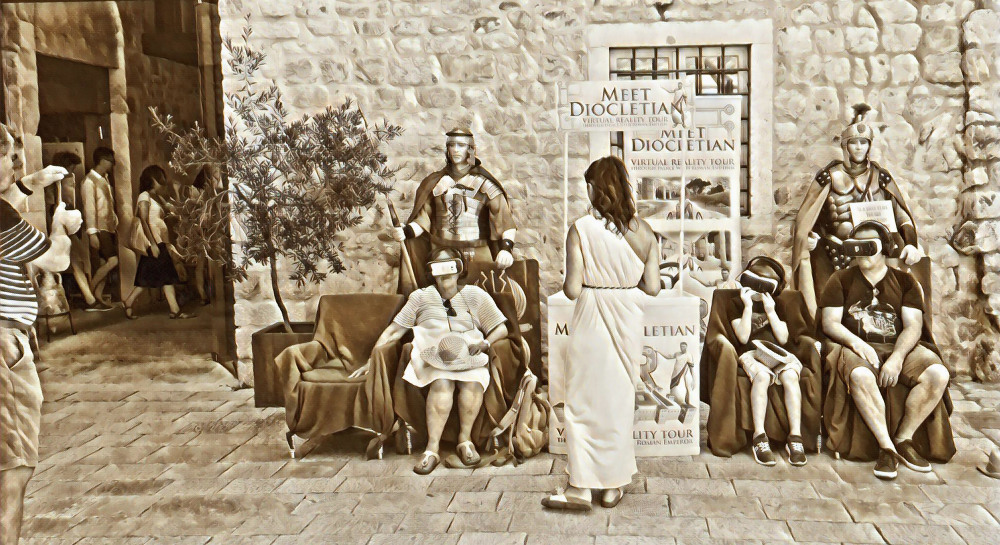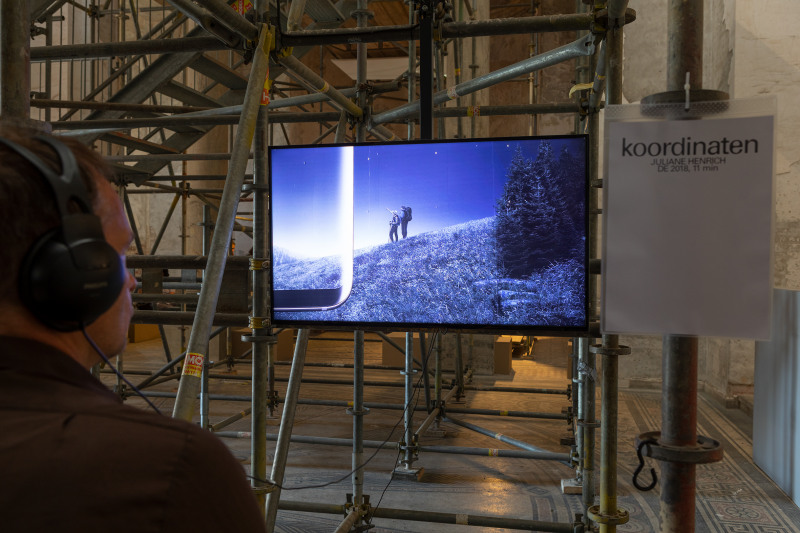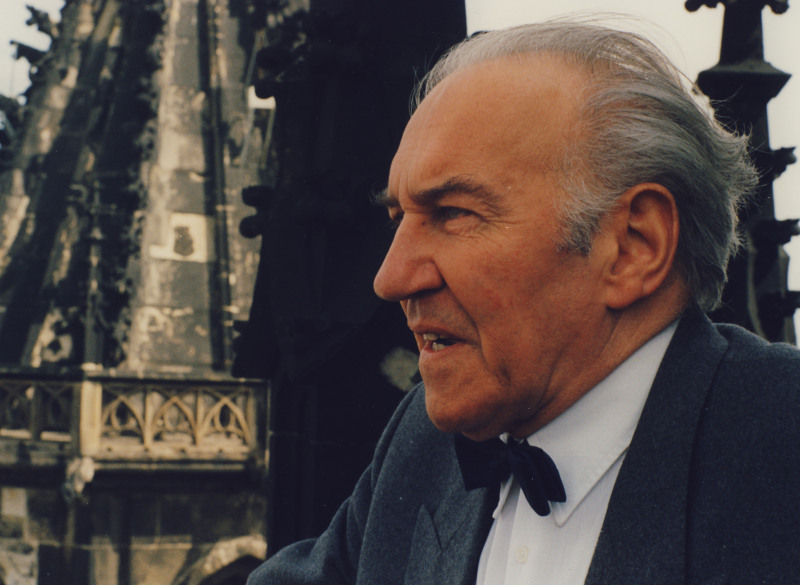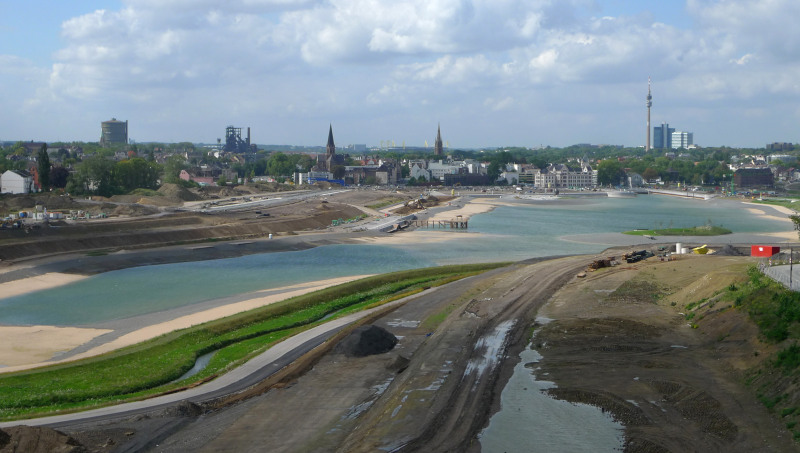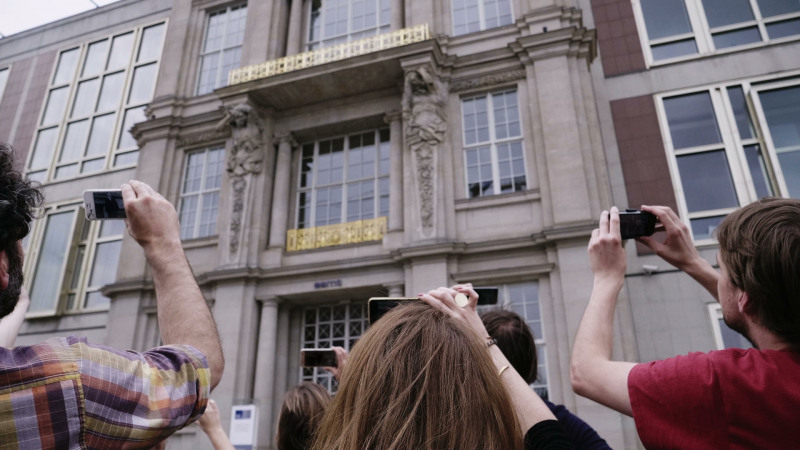The film selection curated by Florian Wüst for the 2019 Werkleitz Festival examines the thematic tension between models and ruins, which in the nearby Georgengarten (Modernity as Ruin) and Bauhaus Meisterhäuser (Modernity as Model) is to be experienced with particular intensity and fascination in an urban setting. In the context of the acute societal upheavals of the 20th century, the point of departure for both the cinematic installation in the Mausoleum and the film programme at Kiez-Kino are historical documentary productions: In Stadtbild [Cityscape] (1981) Harun Farocki explores the criticism that emerged in the mid 1960s of modernist post-war architecture, which describes the functional city as an embodiment of desolation, ruins of the living spirit. The owners and employees of a masonry and monument preservation operation in the city of Magdeburg tell of the time of Germany’s reunification in Friede Freude Katzenjammer [Peace Joy Morning After] by Detlef Gumm and Hans-Georg Ullrich (1991). With a focus on social, economic and urban changes and a number of contemporary artistic videos, the selection offers an examination of both history and future with special emphasis on questions related to the present relationship between space and ownership, memory and representation.
